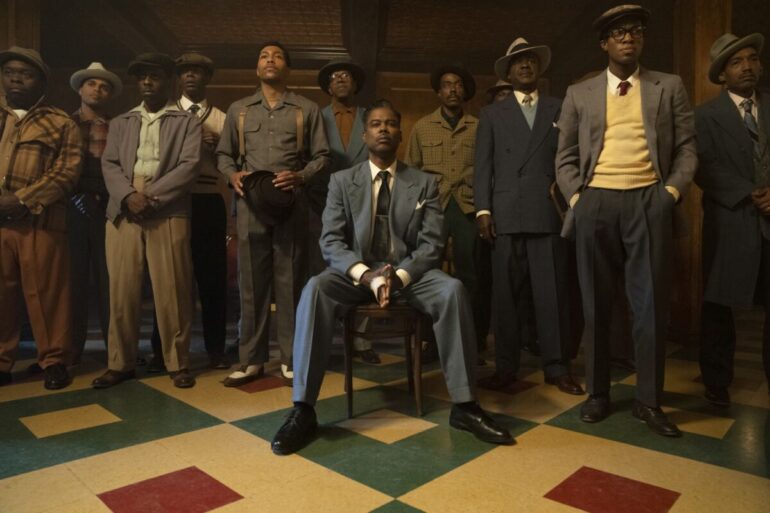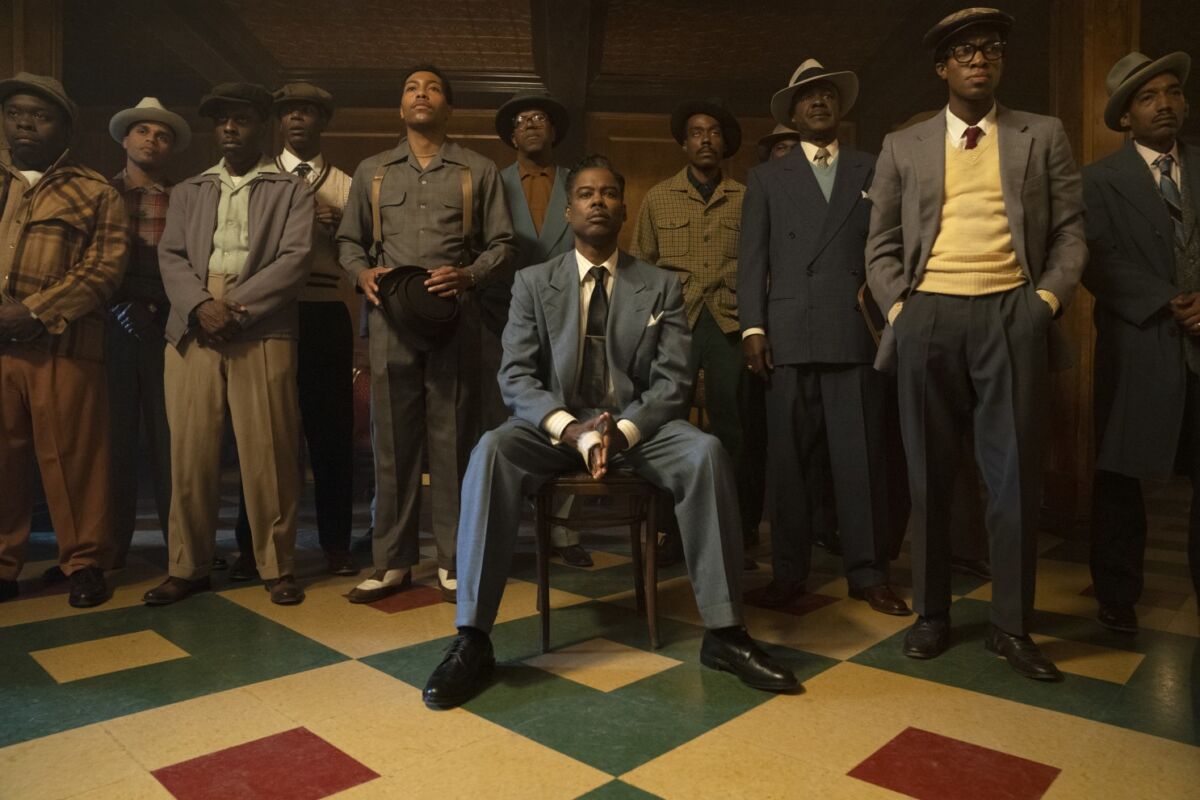Despite the name, Season 4 of Fargo isn’t set in Fargo. It isn’t even set in Brainerd. Instead, it’s down in the comparative centre of the universe, Kansas City – but perhaps this is apt, since rather than the original film Fargo, from the off it’s drawing more on the Coen brothers’ mob epic Miller’s Crossing, and the eternal struggles between America’s various ethnic crime gangs. Don’t like this gang? Don’t worry, there’ll be another along in a minute.
Perhaps inevitably, since it’s moving away from Fargo-the-film, there’s a shift from the formula Fargo-the-TV-show had been working with for the past three seasons. It’s not completely discarded, but it is upside-down.
Here, remarkably, the sappy couple who get in over their heads with some bad dudes don’t take centre stage. And the quirky Minnesotan woman with a florid manner of speaking isn’t a good egg. More importantly, both these plotlines are sideshows to the mob war which dominates proceedings.
This focus surely owes quite a bit to Fargo having bagged Chris Rock, definitely the big cheese of this season’s casting, as one of the gang leaders. The only name or face who’s anywhere near as recognisable is Ben Whishaw’s tormented adoptee. Due credit to Whishaw, he can sell ‘jaded Irish-American hood’ remarkably well for a little lad from Bedfordshire. Yet sometimes, I wonder if every casting director is for some reason seeing him about six inches taller and two stone heavier than he really is.
Rock makes a passable ‘50s gangster, you’re never expecting him to suddenly turn and go into a skit, but he’s propped up by the people around him – especially Glynn Turman as his older, wiser advisor. Turman is unimpeachable as a leader’s left hand, especially in those double acts with his opposite number in the Italian mob.
However, the real standout is relative newcomer Salvatore Esposito as the brother of the Fredoish mafia boss. He dominates every scene he’s in, as if light is bending around his surface, and not simply because he’s a big bloke. Where a lot of the cast are giving fairly understated performances, Esposito is like the bull in some comic opera, dancing to the music, at times even becoming – as the aging, expanding comedian Stewart Lee worried his own fate might be – a physically funny object.
Miller’s Crossing has been described as the Coens’ take on The Godfather, that codifier of the mob epic as a genre. This is clearly something the makers of Fargo’s fourth season had in mind, with at least one overwrought death scene having spilt oranges in the background, but I wonder if the Coens themselves did. Miller’s Crossing had a level of slapstick to it which you simply wouldn’t find in Coppola’s tale of family – but which, it must be said, you would in this run of Fargo. For a gritty story of mob war, it’s surprisingly farty.
In Miller’s Crossing, though, while the crime bosses were memorable enough figures, they were ancillary characters, not on a Godfather-like centre stage. This isn’t the case here, and insofar as there is a main character out of all the options present, it is Rock’s mob head. Yet I’m saying this in tentative fashion, and honestly, the show is too, giving the opening monologue to a little girl who is, perhaps, more natural protagonist material.
This is what we’ve come to expect from Fargo-the-show, a whole palette of interesting characters, most of whom could front a season all on their own, and this lot are no exception – obviously I’m thinking primarily of Esposito here, imagining him ballet-leaping through a whole ten hours of comedy ultraviolence, or otherwise E’myri Crutchfield as the little girl who really should have been in the middle of things. But there’s plenty of strong options present. Too many, in fact.
With an entire gang war to focus on, and the weird nurse, and the hapless family, and the escaped convicts, and the policemen, this season of Fargo can’t help but seems dangerously overstuffed. And it seems that this is on a bedrock level, given its unusual eleven-episode structure. The finale comes in at barely more than half an hour, which seems like nothing more than an awkward solution to simply having to deal with too much material.
Even though the story’s ruthless enough about killing people off in unceremonious fashion, the writers, it seems, couldn’t stand to leave one of the more superfluous plots bleeding in a ditch – or even to cut out some of the flashbacks. Right to the end, it’s still trying to introduce new players.
Having so many moving parts keeps things active, they’ve always got something to dip their toes in, but this ends up with us flitting between plotlines seemingly at random, having to hastily chuck in the setup for the next plot point. And what’s maddening about this is that it can clearly do better. Some sequences are tight as a drum, then suddenly it’s a matter of a plodding ‘and then this happened, and then this happened’ like a Biblical genealogy.
What’s also a bit of a negative is that they’re still – even in a season which involves ghosts – applying the subtitle ‘this is a true story’, after the third season had the word ‘true’ fade out early and gave us a lot of meditation on the relationship between truth and stories. Admittedly, we know that none of the Fargos were ever true stories, even the most dunderheaded viewer surely figured that out when the second season had a UFO turn up. But then, as discussed, this isn’t so much a Fargo as it is a Miller’s Crossing.
The various B-plots, granted, do keep Season 4 from going over to being entirely the chronicles of the mob war, yet I wonder if that would have been such a bad thing. All the seasons of Fargo have had the crime syndicates of the Midwest whirring in the background, to greater or lesser degrees. Having seen how this run turned out, they should have done a straight-out tale of gangland, just to get it out of their system. Then they can get back to the usual black comedy of in-over-their-head fools making bad choices.
Some of the coverage you find on Cultured Vultures contains affiliate links, which provide us with small commissions based on purchases made from visiting our site.


